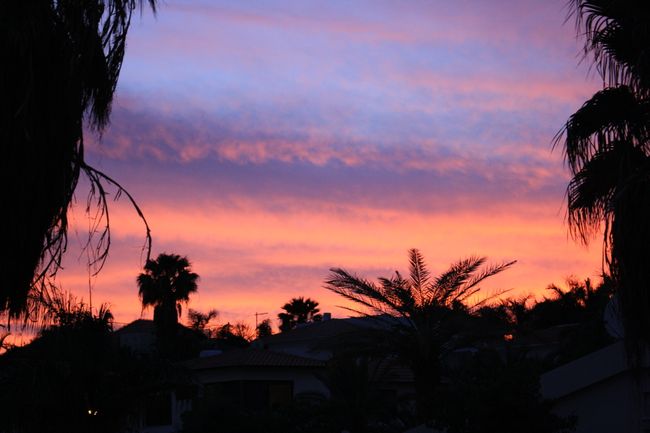Day 7: Temple Mount, Old City, Bethlehem
प्रकाशित: 08.04.2018
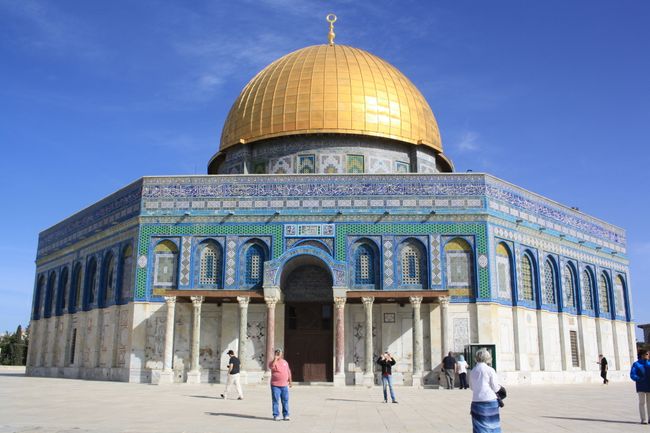
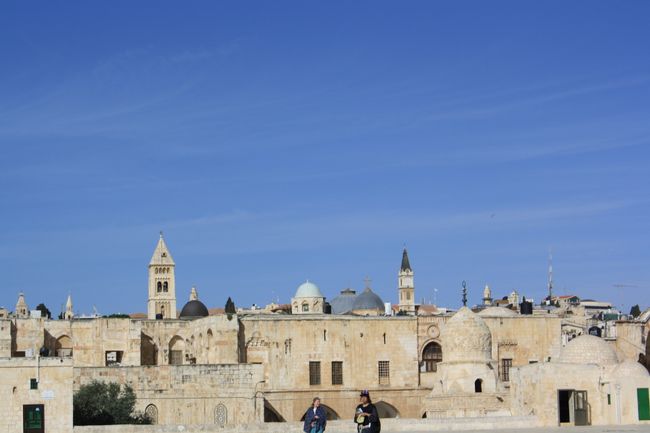
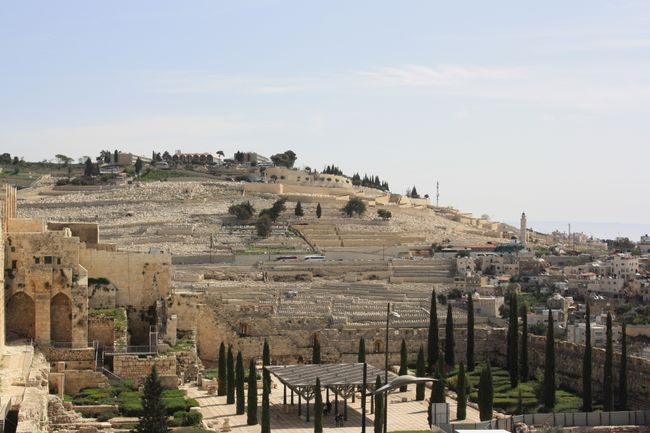
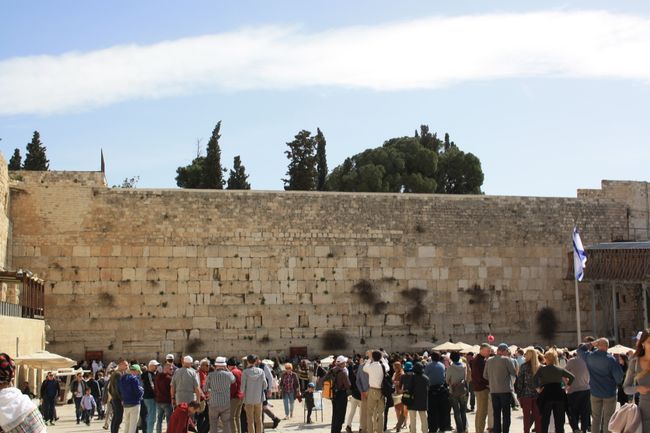
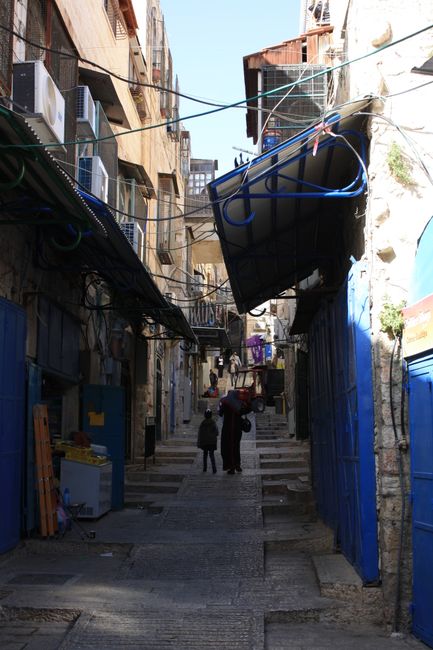
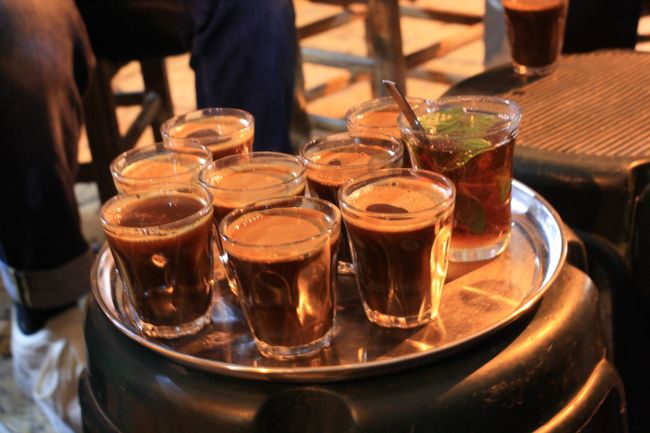
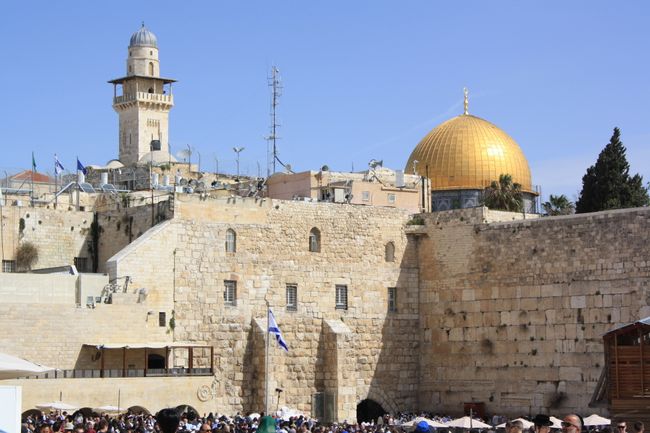
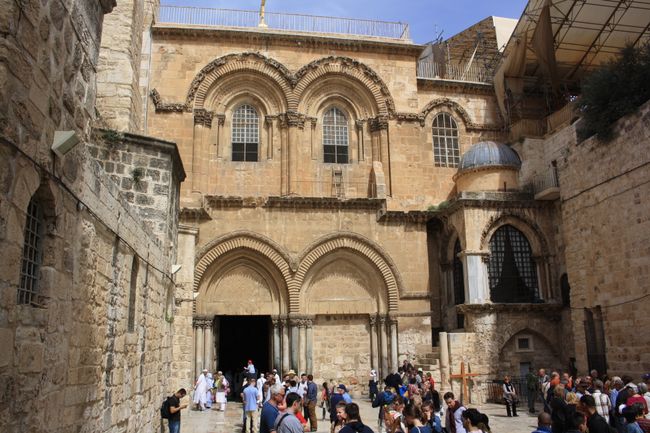
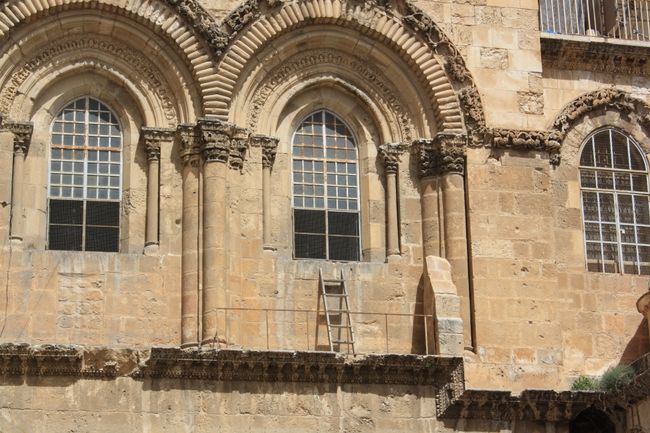
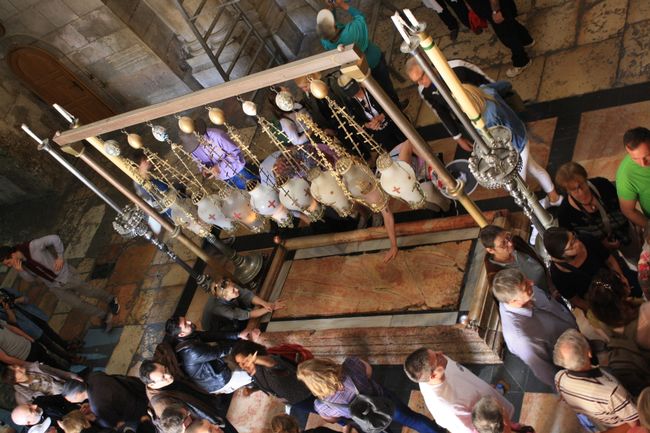
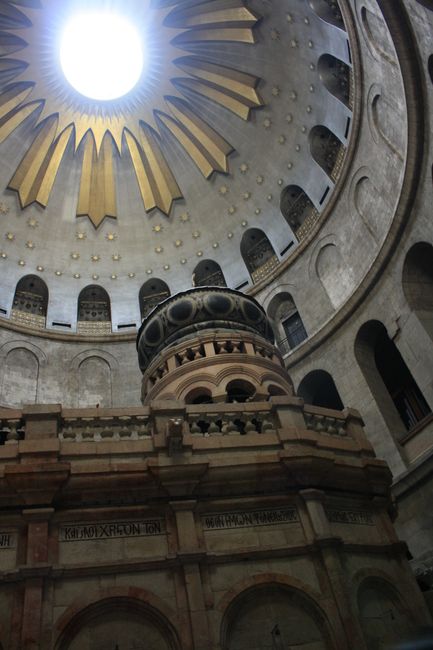
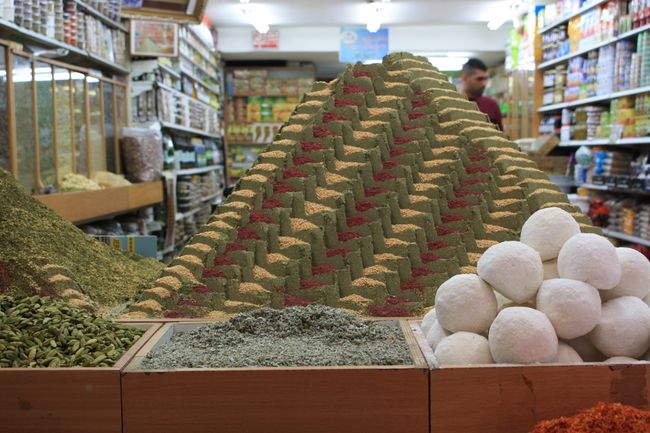
समाचार पत्रिका के लिए सदस्यता लें
Today we start our day very early - at 7 am we meet and make our way towards the Old City of Jerusalem, slightly sleepy. We pass through the Jaffa Gate, which is the entrance to the Armenian and Christian quarters of the Old City.
We want to try to visit the Temple Mount, as there is only one entrance and very limited visiting hours for non-Muslims, we want to be there on time. The line in front of the entrance is already quite long at this early hour, but we are lucky and shortly afterwards we arrive at the security check.
Once we are at the top, our team leader tells us something about the history of the Temple Mount and it becomes clear why this place is so tense and how long the conflict around it has been going on.
The Temple Mount is of great significance to both Muslims and Jews, which is why there are often outbreaks of violence and conflicts, as these two religions both claim this place. For Christians, the Church of the Holy Sepulchre in the Old City of Jerusalem is one of the most important places. The tension associated with this place becomes apparent when a group of Jewish men, some of them seemingly Orthodox, accompanied by police officers, come to the Temple Mount. They are closely observed and move around the area only with the police officers on both sides, but everything remains calm.
We stroll around the area and enjoy the view over the Old City. Access to the Al-Aqsa Mosque and the Dome of the Rock is denied to us, but the Dome of the Rock with its huge golden dome is also very impressive from the outside.
After an Arabic coffee, we sit in a small shop in the Old City and enjoy delicious lamb with pita bread - the most delicious meat some of us have ever eaten.
Freshened up, we walk through the Old City, which is divided into four quarters: the Armenian, Arab, Jewish, and Christian quarters.
The main attraction of the Christian Quarter is the Church of the Holy Sepulchre, where Jesus was buried. It is very crowded there, with many people standing in line to visit the tomb and touch the stone on which Jesus was anointed. We also observe some groups of pilgrims making their way through the crowd singing and carrying crosses on their shoulders. They follow the path that Jesus had to walk before his death.
Since the church is significant to all Christian denominations, conflicts sometimes arise among them. There are six different denominations present in the Church of the Holy Sepulchre alone. For this reason, two different Muslim families manage the keys to the church in order to avoid disputes among the denominations.
Afterwards, we visit the Western Wall, the last remnant of the First Jewish Temple. There is a separate area for men and women. The men are given kippas, which they have to put on if they want to approach the wall. Many Bar Mitzvah celebrations take place there, with singing, laughter, and joy. However, it is quieter right at the wall, where people pray and place small notes with wishes and prayers written on them into the cracks. Many of them are very emotional and quietly weep, indicating the high significance that this place holds for many people.
After a short break at the Austrian Hospice, we take a minibus to Bethlehem. The journey is short and in no time we reach the wall that almost completely surrounds Bethlehem - the border between Israel and Palestine. This is heavily guarded by IDF soldiers, but we can pass through without any problems.
In Bethlehem, we stop at the Banksy Hotel, which is located right next to the wall, and walk along it for a while. The wall is adorned with various graffiti, including slogans and cartoons. The cartoons reflect the desire for peace, but also the hate towards Israel. Anyone can buy a spray can and leave their mark on the wall. Locals have different opinions about this; some see it as a nice way to make the gray wall more appealing and peacefully protest against it through art. Others, however, believe it is wrong to make a business out of it and profit from the wall.
Afterwards, we visit the museum in the hotel, which describes the course of the Israeli-Palestinian conflict from a more pro-Palestinian perspective.
After a short drive, we arrive at the Church of the Nativity. The walls are adorned with magnificent and beautiful mosaics, and you can hear prayers being sung. However, the atmosphere is generally quieter than in the Church of the Holy Sepulchre, as there are fewer people and they behave more calmly.
As we walk through the market across from the church, it quickly becomes clear that the people living here are much poorer than those in Jerusalem. The streets are dirtier and the buildings appear somewhat more run-down than in the Old City of Jerusalem, and there are more beggars on the streets.
A short while later, we have a meeting with two people from a social institution in Bethlehem, the director and a young woman. They tell us about the institution and its projects. Above all, they want to give children and young people the opportunity to experience a place of joy and friendship and bring people together, despite the political and tense situation.
In addition, they promote values of gender equality through projects such as football and dance. We are given a tour of the facilities and watch a mixed football training session, as well as a ballet class.
In addition to the various activities of the institution, the two also describe their everyday life in Bethlehem and the difficulties that come with it. Above all, the many checkpoints and inspections cause problems and insecurity. They feel treated unfairly, as the soldiers' checks often appear arbitrary and they often feel disrespected.
The conversation with the two of them has definitely reinforced what we all already knew: that the conflict has many sides that must be taken into account and that it will be difficult to find a solution that satisfies everyone. Nevertheless, I believe that an exchange with all parties involved is a step in the right direction.
Our return journey is just as smooth as the outward journey, but we are all very tired after the long day and glad when we are back at the apartment in Jerusalem. After a little refreshment, we meet up with some Katamon fans at Sira Pub and end the evening with a cool Goldstar beer.
समाचार पत्रिका के लिए सदस्यता लें
उत्तर

